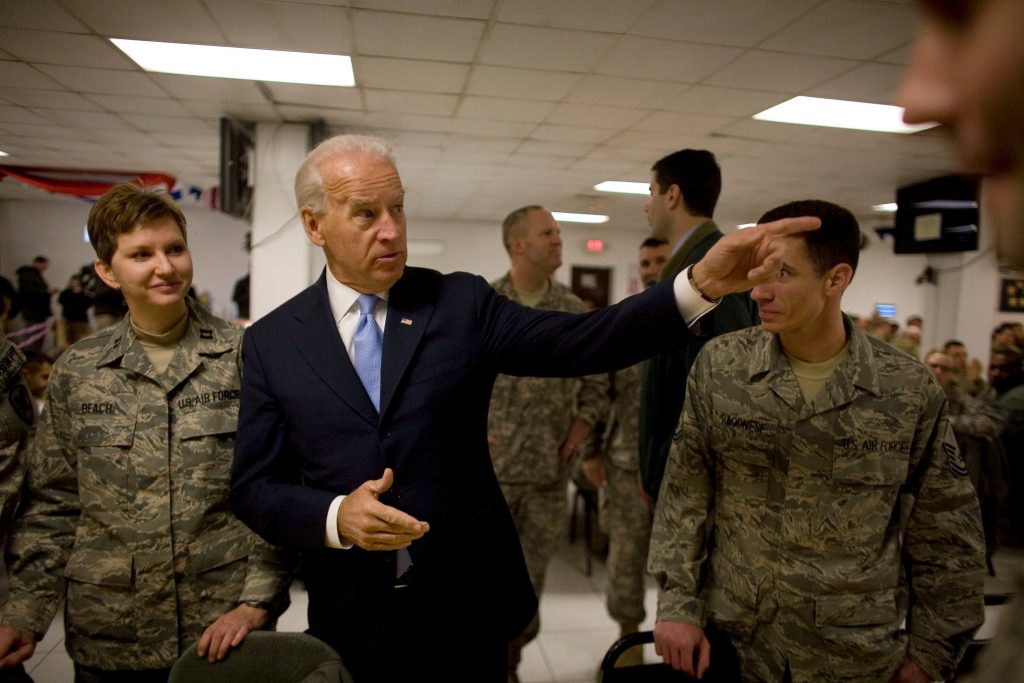President Biden’s reset of US’ Asia policy will primarily determine the future contours of Sino-US relations. It will address the massive Chinese ingress into the various Asian sub-regions like the Greater Middle East, South-Central Asia and Indo-Pacific as major policy objectives/compulsions. Will President Biden bluntly confront China as President Trump did; will he co-opt it for larger bilateral and universal benefit or will he just try to contain and manage its rise? Regardless, he will block all Chinese challenges to the US’ singular position as the sole economic power and hegemon of the world.
US’ Afghan policy, a subset of its overall Asia policy, will determine the strategic direction/fate of its Afghan campaign.
President Biden will only continue with the Afghan Campaign if it contributes directly to achieving his major policy objectives in Asia of, at the least, containing and managing the rise of China; the strategic implication being stemming the BRI-CPEC—China’s economic juggernaut! Could there then be a paradigm shift in the objectives of the US Afghan campaign—from counter terrorism to containing China and its BRI-CPEC? If so, then the badly mis-firing Afghan campaign might yet get rejuvenated and reinforced; else President Biden might just cut his losses and make a clean break.
Afghanistan is located at the confluence of the three Asias—West, Central and South. This central position affords any power (currently the US) occupying it unblemished spheres of influence and strategic reach into these regions. Geopolitically, by egressing Afghanistan the US will lose these and other geopolitical, geostrategic and geo-economic advantages. China will be left unopposed in the region. The resultant vacuum will cause the regional powers—China, Russia, Iran, Pakistan (CRIP), to gravitate purposefully towards Afghanistan; even peripheral India will have pretensions. China will be keen to incorporate Afghanistan into its BRI-CPEC and create an interconnected and economically interdependent network between the three Asias through it. Afghanistan could potentially become the BRI’s fulcrum, it’s pivot in this region. Russia too will re-engage Afghanistan. Pakistan and Iran will remain crucial to Afghanistan’s prosperous future. Geo-economically, leaving Afghanistan will deny the US close oversight on the BRI-CPEC and its East-West and North-South trade corridors across the region and the fossil fuel reserves of Iran and the CARs; also, the plentiful mineral resources of Afghanistan (reportedly between USD1-3 trillion), CARs and Pakistan’s Baluchistan. Russia and the CARs however, seek access to the Makran Coast-Gwadar through Afghanistan for trade. Geo-strategically, the US will lose intimate oversight on Iran’s and Pakistan’s nuclear-missile programs and a very advantageous position to envelope the Makran Coast from, were it to ever get militarized. Most importantly, it will lose the ability to threaten the BRI-CPEC from its most dominant central position amongst the three Asia’s.
President Biden has three basic options to choose from. He could adopt President Trump’s current policy and withdraw from Afghanistan by May 1, 2021, regardless of how the Intra Afghan dialogue fares. The CRIP expects the US to make a responsible withdrawal from Afghanistan. It would rather have Terrorism Central (IS, Al Qaeda, TTP, JuA, IMU, EMIT etc) caged and destroyed within Afghanistan prior to the US’ departure. An injudicious withdrawal will condemn Afghanistan to serious infighting, chaos, inevitable implosion and balkanisation. The region will be severely destabilized. The Afghan Taliban would welcome US’ egress as it would hasten their move on to Kabul while the NUG will be petrified to lose US patronage. Terrorism Central and India will exploit the anarchy to their advantage, with the latter’s state sponsored terrorism into Pakistan continuing to thrive!
Option two could be to continue pursuing the Afghan campaign with renewed vigor. This would entail a further surge in US and Allied troop numbers in pursuit of an apparently indefinite, even unattainable objective. It would tantamount to reinforcing utter failure. CRIP would rather see the US leave the region in a responsible manner. However, Pakistan could again come under relentless US pressure to ditch the Taliban and eliminate their so-called safe havens on its territory. The Taliban will consider it a breach of its agreement with the US and will promptly revert to its ferocious, militant ways. The NUG will relish staying in power, while the RAW-NDS nexus will continue its diabolical state sponsored terrorist attacks into Pakistan. Unless attacked, terrorism central will flourish in these environments.
The third option is for a responsible US withdrawal. The US could delay its egress by a year or so. This may give the intra-Afghan dialogue better chances to reach a peaceful and effective closure. The US (or a Special Representative of the UNSG) could act as an honest broker between the two parties. Without effective moderation-arbitration the very serious issues of the form of government (Islamic Sharia versus a secular, democratic, western style parliamentary system), the imposition of a viable ceasefire and the neutralization/elimination of Terrorism Central will be hard to achieve. This time delay might be acceptable to the Afghan antagonists and CRIP too. India’s state sponsored terrorism into Pakistan however, would continue unabated. Terrorism Central could be neutralized/destroyed in this time period. This option will allow the aftermath of the US withdrawal to be managed in a compelling and peaceful manner.
Were the US to leave arbitrarily then the CRIP must move in speedily to implement a regional solution to this seemingly intractable conundrum. The Moscow or Beijing process could be revived with Pakistan and Iran providing critical support. As fallback options the UN and/or the SCO fora could be considered too. Contingency planning thereto ought to be well underway. Under no circumstances should this opportunity to bring peace and prosperity to Afghanistan and the region be lost.
Regardless of what President Biden decides it will have a massive impact on the future prospects of this region. The US and India have an ominous convergence of interests at disrupting, delaying and destroying the BRI-CPEC. It will be up to Pakistan and China to equalize the odds against it and secure it, regardless.
Pakistan had better have its policy options worked out well, already!













